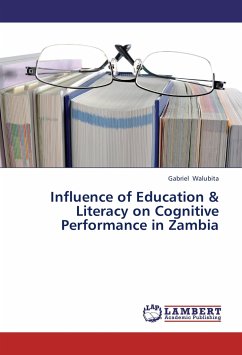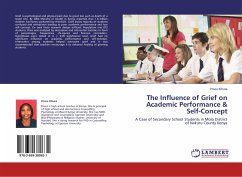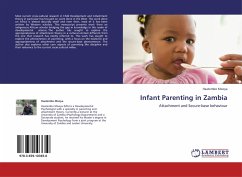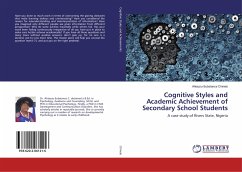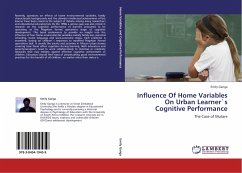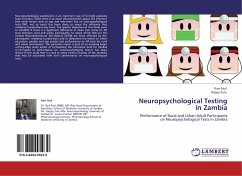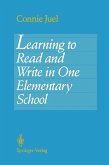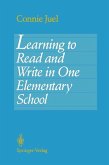This study explored the relationship of Education and literacy to cognitive performance among adults in Zambia in order to promote consistency in using education as a predictor of cognitive performance among adults. The extent to which self-reported years of education corresponds to real acquisition of literacy skills remains largely opaque, especially in Zambia, where past access of adults to education is very unevenly distributed.A sample of 324 neurologically intact Zambian adults was collected through self-administered questionnaires and the Zambia Neurobehavioral assessment battery. Results revealed a moderate positive association between literacy and cognitive test performance however this relationship was not as strong as that of education which predicted cognitive test scores better than literacy.
Bitte wählen Sie Ihr Anliegen aus.
Rechnungen
Retourenschein anfordern
Bestellstatus
Storno

